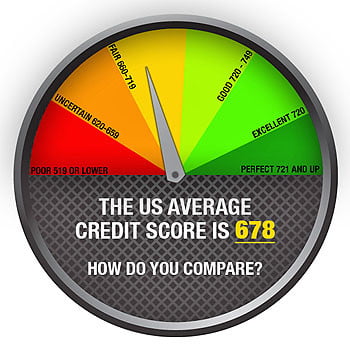Check Your Credit Report!
 The month of January is a good time to check your credit report.
The month of January is a good time to check your credit report.
You have to have credit to get credit. This elusive score determines (in-part) how you will navigate the personal finances of business during your adult life.
A person’s credit score determines whether they get reduced interest rates for bank loans, a job, an apartment, a low interest rate on a vehicle, or a vehicle, lower insurance rates, and many other preferential treatments.
Just as an overly jealous boyfriend plagues a new romantic relationships, companies are weary of putting their precious money on the line for someone who hasn’t yet proven themselves trustworthy. It is therefore critical that much care should be taken to make sure that your credit score is a healthy one.
Here are some tips to help with that effort:
- Always keep an eye on your credit reports. A free report can be obtained every year from each of the three major credit bureaus – Equifax, Experian and TransUnion. If you spot any errors make sure you have the credit bureau(s) correct them immediately.
- Keep an eye on is your FICO score. This is the most commonly used credit score and ranges from 300 to 990 points. Preferential treatment is given to people with scores above 720.
- Make it a habit of paying your bills on time, every time – even if it is only the minimum amount due. You are not granted credit simply because you have a good credit score; you are granted credit based on your ability to pay back the loan. Payment history consists of 30% of the total FICO scores. Repayment of past and current debt is the single most important factor in calculating credit score.
- If you have problems with paying your bills on time – due to time constraints or simple absent-mindedness – seek out and make use of automatic bill payment options.
- Whenever possible, pay more than just what you have to (the minimum amount due). It costs more to keep paying over a longer time.
- Always try to keep the balance on your credit accounts below 35% of the overall available credit. Credit utilization makes up 30% of a FICO score, and people with the best scores are those with approximately 7% credit utilization ratio (10% – 20% is generally OK).
- Make sure you don’t lose credit cards or close accounts – 15% of a FICO score is based on the length of time an account is open and how recently it was used. Closing an account reduces credit utilization ratio and the amount of credit that is available to you.
- Mix up your credit: mortgage, home equity, auto loans, and credit cards – it makes for 10% of scores.
- Never apply for too much credit – doing so makes you look desperate and credit-hungry. It consists of 10% of your credit score.
- Don’t move your debt around by paying one credit card bills off with another credit card.
Don’t have a credit card to build credit?
There are a number of ways that a person can establish credit. One way is to get a “secured credit card.” A banker can discuss this option with you. With a “secured credit card” the bank is guaranteed (from you and the amount of money you deposit against the card) that you will not miss a payment because you have essentially prepaid for any amount you charge up to your limit.
While you are building credit, and will eventually reach a high enough credit score to merit approval for an unsecured card, the deposit you’ve made on your secured card is off limits while in use.
Another popular method is to get a retail store credit card. Retail cards are generally much easier to obtain even if your credit history and credit scores aren’t in the best shape. Although quick payments on retail cards facilitate a positive credit history, there are limitations on where these cards can be used, and the interest rates can be very high.
Paying them off quickly is a must. The line they love to give you is ‘if you open one today you’ll save 10%,’ which is nice; but then they’ll slaughter you with high interest rates later.
Helpful Advice
If you can afford to do so, set aside a certain amount of money each month for your credit card payment. If you can pay off $100 per month, for example, make out four checks of $25 each; put them in separate envelopes addressed to your creditor. Mail the checks once a week for a month. Each checks payment will be noted by the credit card center. This will help you to build your credit-worthiness, credit score, and ability to pay. Repeat this process as often as you can afford to do so.








